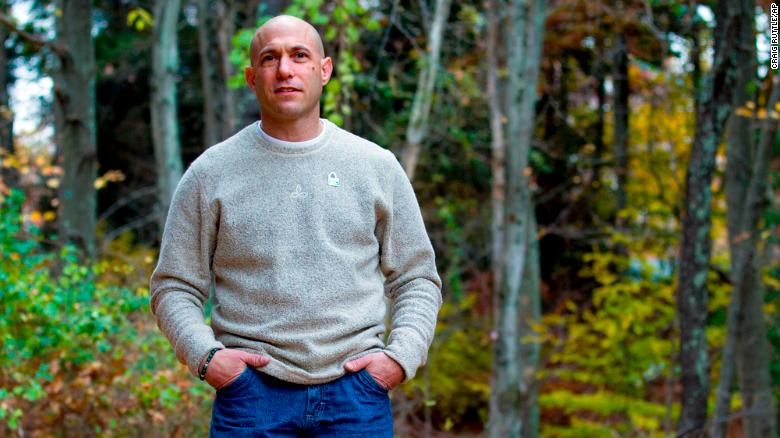 THE LEGACY OF ROBIN WILLIAMS 1951-2014
THE LEGACY OF ROBIN WILLIAMS 1951-2014
Depression, like food addiction and suicide, is
a disease of isolation. You want to be alone to lick or contemplate your wounds or comfort yourself with your favorite foods. If there's any kind of story in your head, it's when you're alone that you're also more likely to question whether others would be better off without you. Only time will tell whether Robin Williams received such depressing health news that he figured he was going to be a burden to his loved ones. On the hand, we may never be able to make sense of the actor's one act that
DID NOT leave us laughing.
But the death of Robin Williams is less solemn, than it is a WAKE UP call. The legacy Robin Williams is leaving us is a door-opening opportunity to talk openly about DEPRESSION, SUICIDE, and other MENTAL HEALTH ISSUES. As a certified teacher for the free NAMI education 12-week course - Family2Family - I have witnessed first hand the pain and helplessness of the relatives and caregivers of their loved ones wrestling with various kinds of mental illness. Whether there's confusion of thought or processing of information (Schizophrenia) or mood shifts between manic and depression (BiPolar Disorder)... MENTAL ILLNESS IS BIOLOGICALLY BASED. MENTAL ILLNESS IS A FAMILY AFFAIR. But too many in the public have not been educated to know these facts. Most haven't seen or heard the research that demonstrates that mental illness is not associated with violence, WHEN diagnosis and treatment are provided. Instead, legislators are typically sidetracked into controversial discussions about the rights of people with a mental illness: should you or should you know force treatment on a person who can't make appropriate decisions because their mind in temporarily compromised by a brain disorder. Instead of holding legislators accountable for the lack of mental health facilities and integrated treatment teams, we continue old debates at the expense of new and ongoing needs.
Furthermore, when it comes to suicide, it is not unusual for loved ones and friends to feel betrayed or cheated. Their long grieving period begins with trying to make sense of an event that often has multiple causes... a pain often suffered in isolation. For the one leaving, the decision may well be seen as an act of kindness; the desire to be less of a burden. Darkness is faced alone and though friends and loved ones offer much needed distraction, the downtime and ultimate period of isolation may encourage the use of other substances to soothe the pain or quiet the storm in the head. What we do know and is made startling clear by the death of an icon is that deep, serious depression and other forms of mental illness are not going away.
We certainly have the moral authority to demand better. The national health care system, thanks to the Affordable Care Act, is no longer going to permit body-brain disease inequities. In the past, the emphasis has been on treating physical diseases - cancer, ALS, diabetes, etc. The resources and treatment options for mental diseases are not only less developed but likewise receive less research dollars. With the closing of mental health institutions in the 1970s, the mental health burden was shifted to community for solutions, even though funding did not increase as the number of people with mental health issues living in local communities did. The small pool of state and federal funding is only now beginning to get more attention. The public is beginning to learn of the severe shortage of beds and professionals to deal with individuals who experience mental health episodes and that too many individuals with mental health needs are criminalized and housed in detention centers and jails. It's becoming less acceptable that someone having a chemical imbalance in the brain is criminally blamed when someone going into a diabetic emergency while driving a vehicle, is not.
We already are an addicted nation. In case no one has notice our neighbors and friends, our co-workers and policy makers, our loved ones and gatekeepers in schools, medical centers, and churches are likely to be taking antidepressants, using drugs and/or alcohol, or having other obsessions to cope when life is difficult. Our society has changed drastically. Our methods and mindset for dealing with diseases above the neck, have not changes as rapidly as needed to produce a more humane society.
So it's important in the wake of Robin Willliams' death to pause and to first, thank the comic genius and humanitarian and, second, thank the Williams family for sharing him. I am grateful that as with President Ronald Reagan bravely sharing he had Alzheimer Disease, Robin Williams' last act is affording us the opportunity to talk more openly about mental health needs.
At a time when the Center for Disease Control reports that more people die from suicide than car accidents, a national discussion is long overdue. Though he did not leave us laughing this time, Robin Williams gave the country a gift to explore how to de-stigmatize mental illness, increase treatment opportunities for citizens and the military, and recognize that behavorial changes due to a brain disease can be a special gift when treatment and support are available.
R.I.P. Robin Williams... your ability to make us laugh and forget some of our own burdens will be sorely missed. Thank you for all you did with your 63 years.
Robin Williams with his three children (Zak, Cody, Zelda) and second wife, Marsha Garces.
Spouses: 1978 Valerie Velordi
1989 Marsha Garces
2011 Susan Schneider
Robin with third wife.


July 31, 2014 birthday shout out to daughter, Zelda turning 25.

 Chris Murphy Chris Murphy Retweeted Daniela Altimari
Chris Murphy Chris Murphy Retweeted Daniela Altimari














